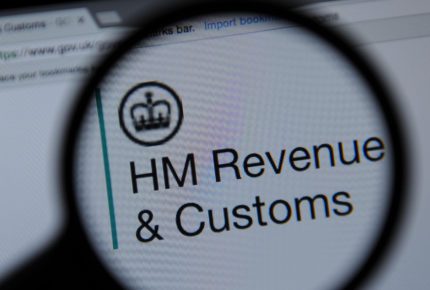

When it comes to conspiracy to commit fraud by false representation, understanding the offence and its legal ramifications is vital for individuals facing charges or undergoing prosecution as first-time offenders. This serious criminal offence carries significant penalties in England and Wales. If you or someone you know is in this situation, gather as much information as possible about the offence and what it entails. In this blog post, we provide an overview of conspiracy to commit fraud by false representation, addressing common questions and concerns that arise for first-time offenders.
What is the offence of conspiracy to commit fraud by false representation?
Conspiracy to commit fraud by false representation is an offence under English law, which can be prosecuted under both the Fraud Act 2006 and the Criminal Law Act 1977. The Fraud Act defines the offence of fraud by false representation, while the Criminal Law Act defines the offence of conspiracy, which involves an agreement between two or more persons to commit an unlawful act.
To secure a conviction for conspiracy to commit fraud by false representation, the prosecution must prove the following elements:
- There was an agreement between two or more persons. A person cannot conspire alone. The agreement does not have to be explicit and can be inferred from the actions of the individuals involved.
- Intention to commit fraud by false representation. The parties to the agreement intended to commit fraud by false representation. This means they intended to make a false representation dishonestly intending to make a gain for themselves or another, or to cause loss or risk of loss to another.
- False representation. The parties intended to make a false representation. This could involve a false statement about a fact or law, or the present intentions of the person making the statement.
- The parties intended to act dishonestly, where dishonesty is understood as what reasonable and honest people would consider to be dishonest.
Penalties for conspiracy to commit fraud by false representation include imprisonment, fines, or both. The specific penalties vary depending on the severity of the conspiracy and the circumstances of the case. As a serious crime, it would typically be tried on indictment in the Crown Court.
What are some examples of conspiracy to commit fraud by false representation?
Examples of this offence include:
- Bank fraud conspiracy – where two or more persons agree to use false identification to open a bank account, then use the account to obtain loans or credit cards fraudulently.
- Investment fraud conspiracy – where two or more persons agree to misrepresent the value or potential of an investment to trick others into investing their money.
- Insurance fraud conspiracy – where two or more persons agree to stage an accident or fake an injury to collect insurance benefits fraudulently.
- Mortgage fraud conspiracy – where two or more persons agree to provide false information about income, employment, or property value to obtain a mortgage loan fraudulently.
- Identity theft conspiracy – where two or more persons might agree to steal and use another person’s personal information to commit fraud, such as opening credit card accounts or making purchases in the victim’s name.
- Credit card fraud conspiracy – where two or more persons agree to use stolen credit card information to make unauthorised purchases or to sell the information to others.
- Cyber fraud conspiracy – where two or more persons agree to create and spread a phishing scam to collect personal and financial information from unsuspecting internet users.
- Tax fraud conspiracy – where two or more persons agree to submit false tax returns to claim refunds or credits fraudulently.
What happens if you are suspected of committing conspiracy to commit fraud by false representation in the UK?
If you are suspected of conspiracy to commit fraud by false representation in the UK, you could face a complex legal process. This will likely involve police investigations, interviews, potential charges, and legal proceedings. The process may unfold as follows:
- Initial investigation. The police or the Serious Fraud Office (SFO) may start by carrying out an investigation if there is reasonable suspicion that fraud has been committed. This can include gathering evidence through surveillance, interviews with witnesses, and gathering documents or other tangible proof. The Police and Criminal Evidence Act 1984 (PACE) lays out the powers and obligations of the police during the investigation.
- Arrest or voluntary interview. If the police believe they have enough evidence, they may arrest you. However, it is also possible that they will invite you for a voluntary interview under caution instead. In both cases, you have the right to legal advice and should consider seeking representation from a solicitor experienced in fraud and conspiracy law.
- During an interview under caution, the police will ask you questions about the suspected offence. The interview will be recorded and anything you say can be used as evidence if charges are brought against you. You have the right to remain silent, but it may harm your defence if you do not mention, when questioned, something which you later rely on in court.
- Charging decision. After the interview and once the investigation is complete, the police or the SFO will make a decision about whether to charge you. This usually involves a review by the Crown Prosecution Service (CPS) to determine whether there is enough evidence to provide a realistic prospect of conviction and whether it is in the public interest to prosecute.
- Court proceedings. If you are charged, the case will go to court. Fraud offences can be heard either in the Magistrates’ Court or the Crown Court, depending on their seriousness. If you plead not guilty, there will be a trial where the prosecution will present their case, and your defence will have the opportunity to respond.
What is the sentence for conspiracy to commit fraud by false representation in the UK?
Conspiracy to commit fraud by false representation is regulated by the Fraud Act 2006, in conjunction with the Criminal Law Act 1977. This offence covers agreements between two or more persons to carry out fraudulent acts, specifically by misrepresenting facts in a deceptive manner. Generally speaking, the punishment for the offence of conspiracy to commit fraud by false representation under English law is up to 10 years’ imprisonment.
When sentencing, the judge will consider factors related to the offender’s culpability and the level of harm caused by the offence. Aggravating factors could include: the offence being part of broader organised crime; it being a repeat offence; the commission of other crimes alongside the offence; and the severe impact on the victims. Mitigating factors could include: it being a first-time offence; the offender showing remorse or attempting to repair the harm caused; good character or exemplary conduct elsewhere; and the offender’s young age or lack of maturity.
If it is determined that the offender is still in possession of profits or benefits obtained through the conspiracy, a confiscation order may be made by the Crown Court under the Proceeds of Crime Act 2002.
Will I go to prison if it is my first time committing conspiracy to commit fraud by false representation?
Predicting whether an individual will face imprisonment for their initial offence of conspiracy to commit fraud by false representation can be difficult. Without a doubt, this offence is highly serious, and judges rarely entertain the idea of suspending sentences, except in extraordinary circumstances.
Nevertheless, first-time offenders have an advantage precisely because it being their first offence is generally regarded as a mitigating factor. Consequently, regardless of the sentencing guidelines, the first-time nature of the offence can result in a reduced sentence, possibly by several months or even years.
To understand whether a first offence of conspiracy to commit fraud by false representation will lead to imprisonment, seeking advice from an experienced fraud defence solicitor is crucial. A good lawyer will provide insights into the typical handling of similar cases, assess the strength of your defence, and identify any additional mitigating factors that may influence the final outcome.
Where to get further help
If you or someone you know is facing charges or undergoing a trial for conspiracy to commit fraud by false representation, you likely have numerous concerns and questions regarding next steps. Obtaining expert legal advice early on can make a significant difference in such cases. At Stuart Miller Solicitors, we may even be able to have the case dismissed before it proceeds to trial, especially for first-time offenders. Reach out to our team today for a friendly and no-obligation consultation.
OUR COMMITMENTS TO YOU:
-
Responsive
A legal expert will consult you within 24 hours of making an enquiry.
-
Empathetic
We will always treat you with trust, understanding and respect.
-
Specialised
Your case will be handled by an expert who specialises in your type of offence.
-
Proactive
We will take early action to end proceedings as soon as it is practically and legally possible to do so.
-
Engaged
You will be kept updated on your case at all times. We will provide a named contact available to answer your questions.
-
Caring
We understand this is a difficult and stressful time for you and your family. Our team will support you every step of the way.
-
Tenacious
We will never give up on your case. We fight tirelessly to get you the best possible outcome.

